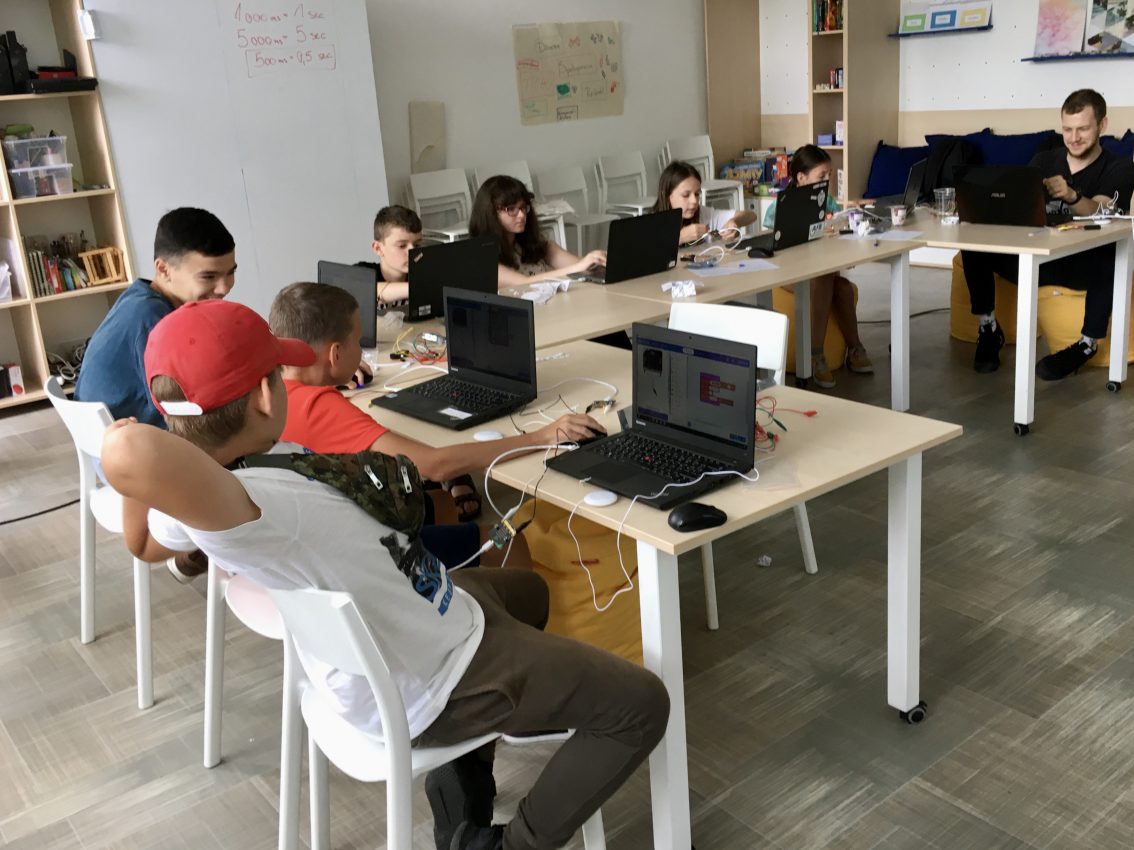Open Future and digital skills
Why are digital skills and their development in children key to our programme? The importance of digital skills as part of information literacy is currently demonstrated by the transition to online learning during the COVID-19 pandemic. Children spend a lot of time in the online world, but very inefficiently.
According to a FOCUS survey for the Telekom Endowment Fund at the Pontis Foundation, conducted in June 2019, up to 41% of children do not use technology meaningfully. They play games and chat. However, only 4 out of 10 children can easily create a spreadsheet or presentation. The survey also showed that the more demanding the technology, the more children have problems with it. There is an even bigger gap in the knowledge of children from economically disadvantaged backgrounds. Over half of them experience problems finding information for homework.
The second problem is the pitfalls and risks of using technology. “Availability of information, openness to other people, but also loss of privacy are risks that young people have to learn to deal with effectively. A solution can be critical and analytical thinking, but also awareness of the dangers that the online environment brings. However, safety, as well as ethical issues related to the use of the Internet, are not among the fields in which students achieve satisfactory results in testing,” the analysis of the project To dá rozum (That Makes Sense) shows.
In the Open Future programme, therefore, participants acquire IT skills and use digital technologies, especially in connection with other skills and as part of working on a team project.
How do we develop children’s digital literacy in our programme?
In the curriculum of the programme, digital skills are developed in connection with two other areas while supporting the area of entrepreneurial skills, to which the activities are directly linked. The main elements of working with digital literacy in the programme are:
- Access to essential and advanced IT and other technologies – Open Future clubs are equipped with essential technologies. Every child has access to their computer, which guarantees the development of their skills on a basic level, which is not a standard for every child in the country. However, the club also includes advanced IT equipment, which guarantees the development of children who are interested in this field and would not otherwise have access to it.
- Inspirational study trips and personalities – very important are also visits by personalities and trips to technology companies, where children can see new opportunities and get inspired to create their own projects or pursue development in new fields.
- Targeted development of skills within the curriculum and the opportunity to develop independently – we develop predefined necessary skills within targeted educational meetings, while children have the opportunity to develop in the digital sphere that interests them independently through our online platform or in maker space.
- Digital skills in practice – the participants can apply the newly-acquired skills in the creation of their social innovation projects, which they can implement in their communities, by participating in competitions (such as the First Lego League) or the individual work in the maker space.
The following skills belong among the educational goals of our programme:
- online communication – effective use, ethics, safety and security,
- tools and programme – online tools for creating documents, visual and audiovisual materials,
- algorithmic thinking and coding – basics of algorithmic thinking and coding in Scratch,
- work using the Internet – working with information, safety and security,
- innovation – technologies of the future, artificial intelligence,
- software and hardware – basic level knowledge, coding with BBC micro:bit hardware device.
We address the issue of safe, secure and healthy use of technology as a stand-alone issue. We learn to look for limits in how much time we spend working or playing with technology or what content of entertainment or learning we choose. It is even more important currently, when technologies have become an essential tool for communication, learning and entertainment for all of us.






